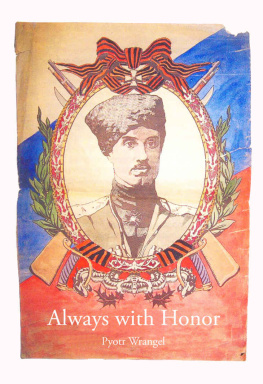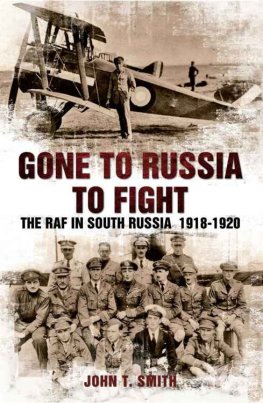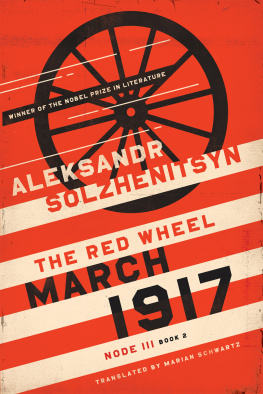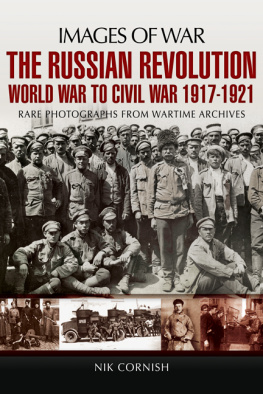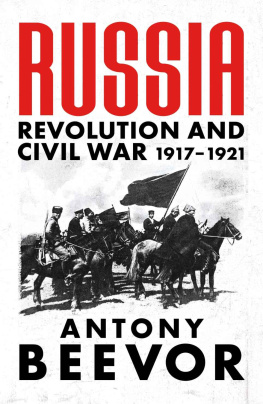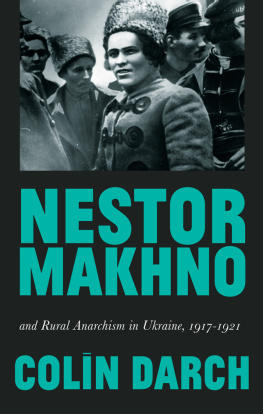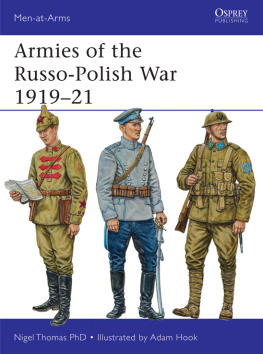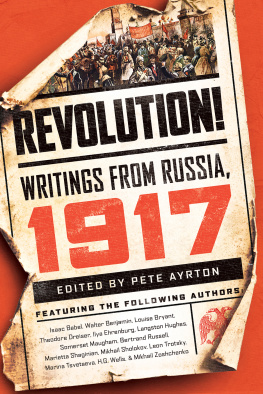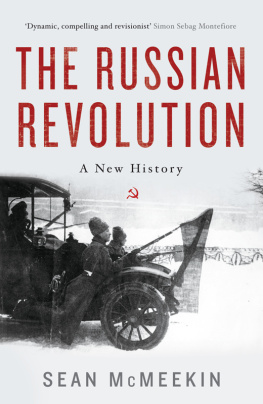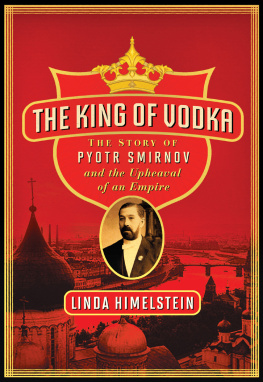Always with Honor
Pyotr Wrangel
Copyright
All rights reserved.
ISBN: 9798695956818
v. 3
First paperback edition by Mystery Grove Publishing Co. LLC
NOTE FROM THE PUBLISHER
The Russian Revolution and subsequent Civil War were perhaps the most significant events in the 20th century. The political turmoil in the 1920s and 30s, cataclysm of the Second World War, and nuclear standoff between the Soviet Union and United States all flow directly from the collapse of the Russian Empire and rise of international communism.
Although the ascent of the Bolsheviks and subsequent Red Terror has been given a great deal of attention in Western media, the struggle of the White anti-communist movement is relatively unexplored. Many titles that offer invaluable insights into these world-shaping events are prohibitively expensive or unavailable altogether.
Always with Honor was, until the release of this edition, one of those lost books. First published in 1928 in the German magazine White Cause, Wrangels account of the early days of the Russian Revolution through the final evacuation of White forces from Crimea was quickly translated into English under the title The Memoirs of General Wrangel. This edition included a note from the translator, Sophie Goulston, as well as General Wrangels preface to the Russian edition. It fell out of print in just a year.
In 1957 a reprint containing a forward from former President Herbert Hoover, whose institute still produces an admirable amount of scholarship on Russian history, was released under the title Always with Honor. This edition lacked the translators note (or any reference to Goulston) and Wrangels preface. It also quickly fell out of print. Copies of Always with Honor are now extremely rare and have been known to sell for over $800. Our new edition of this classic work unites the translators note, preface from the author, and former President Hoovers forward for the first time.
Although we strived make this work in its entirety available to the public again, including maps found in the first edition, there were several photos that appeared in the first edition that would have been impossible to print in high quality while keeping this edition affordable. If you would like free scans of these photos, simply contact our Twitter account (@MysteryGrove).
Wrangel closes his book by urging readers to remember the lessons of men who fought and sacrificed for civilization. We hope this edition will allow a new generation of readers to do just that.
Thank you for reading!
Special acknowledgement goes to the men of the HWGC, CL, and Grove Street. We would particularly like to thank Nemets (@Peter_Nimitz) and Irkutyanin (@Irkutyanin1) for providing invaluable background research, advice, and editing assistance on this edition. Their work preserving the historical record in this area is truly admirable.



Forward
I am glad that General Wrangel's memoirs are being made available to the American people. The title Always with Honor envisages the man.
General Wrangel was educated as an engineer. He departed from that profession to serve his country in war. His first military service was in the Russo-Japanese War in 1904 as an officer in a Cossack regiment. In the First World War he rose rapidly in the Russian Army to the rank of Major General.
I did not know General Wrangel personally. But having charge of European relief and reconstruction measures on behalf of the Allies after the First World War, my duties extended to the Black Sea region. I was therefore familiar with the anti-Communist military operations in South Russia and particularly the army commanded by General Wrangel.
General Wrangel was one of the first of the Russian leaders to realize the dangers of the Communist revolution to the Russian people and the world. Immediately after the seizure of the Government by the Communists he joined the "White" armies under General Denikin in South Russia as one of his principal commanders. I was informed at that time by the Allied military authorities that General Denikin was wholly inadequate to his task and that General Wrangel, who was his subordinate, had the military and personal qualities which might bring victory over the Red armies.
After Denikin's defeat General Wrangel took command of the small disorganized remnants. Starting with an army no better equipped than Washington's at Valley Forge, he recovered the Crimea against ten to one odds. But in the end he was compelled to withdraw through Sevastopol to foreign countries in order to save the remnants of his army and a host of Russian refugees. American Admiral McCauley, who was in Sevastopol at this moment, said:
"Without any disorder Sevastopol was quickly evacuated at 3 PM. General Wrangel was the last to leave."
Until his death in 1928 General Wrangel devoted all his resources to the service of Russian refugees dispersed over Europe. His wife Olga took a devoted part.
In an address six months before his passing, he said:
History, which knows no favoritism, will tell the importance of our struggle, the capacity of our sacrifices. It will know that the fight we carried on for the love of our country, for the resurrection of Russia as a nation, was indeed at the same time to safeguard the culture of Europe, the struggle for an age-long civilization, for the defence of Europe against the Red terror.
General Wrangels memoirs are the story of that great devotion.
HERBERT HOOVER
TRANSLATORS NOTE
In writing his Memoirs, General Wrangel does not appear to have aimed at producing a polished literary narrative, but at telling a story from a particular point of view, and telling it as plainly and simply as he could. The greater part of the book is written in the form of a diary, interspersed with despatches, telegrams, and edicts.
Unconsciously, General Wrangel has achieved a vividness and burning sincerity which more than compensates for any lack of nicety in style and form.
The English version is translated from the French, in which detailed accounts of events of purely Russian interest were omitted, in accordance with instructions given by General Wrangel himself.
PREFACE TO THE RUSSIAN EDITION
These Memoirs do not pretend to be a historical work based on scientific research. I have narrated events in which I took part, or of which I was a witness. As I approached the crisis of my story, I have relegated the personal element in these Memoirs more and more to the background, giving general political questions first consideration.
Throughout I have been careful to cite authentic documents to substantiate my own account of the various events. For the most part I have quoted such documents in full. This detracts from the liveliness of the narrative, but ensures its impartiality.
These Memoirs cover the period from the beginning of the Russian Revolution to the end of the armed struggle in Southern Russia. After the Russian Army had evacuated its native land, the contest took other forms. This struggle is still going on, and will go on until the collapse of the Power which is so hateful to the Russian people.
P. WRANGEL
TABLE OF CONTENTS
PART I
THE BIRTH OF THE COUNTER-REVOLUTION
I - ON THE VERGE
Towards the winter of 1916 the bloody struggles which had been waged throughout the summer and autumn drew to a close. We consolidated our position, filled in the gaps in our effective forces, and reorganized generally.
Next page
